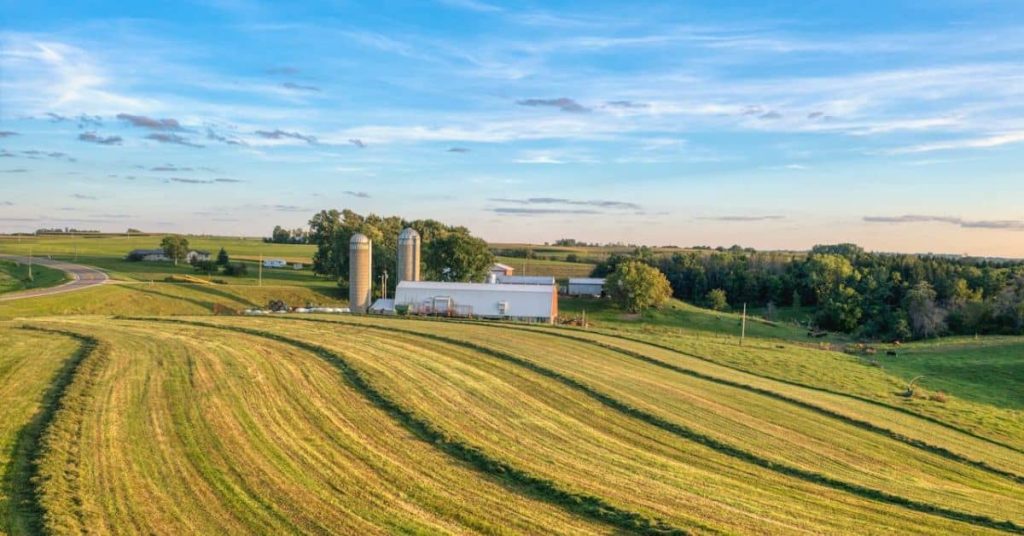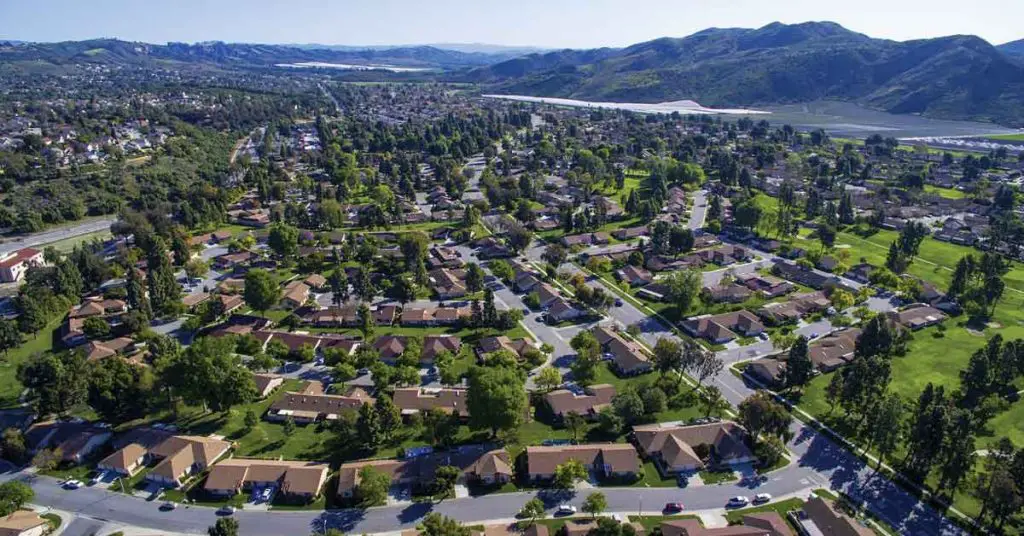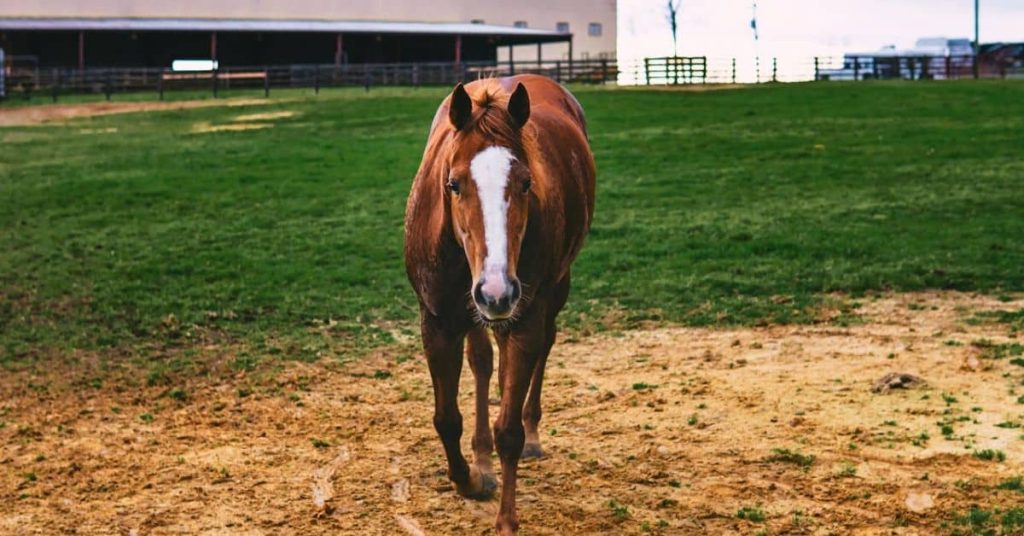Introduction
The resurgence of homesteading has sparked a nationwide quest to identify the best states for homesteading, as more people yearn to return to their roots, embracing a lifestyle of self-sufficiency, sustainability, and profound connection with the land. This movement isn’t merely a passing trend; it’s a testament to resilience, a hands-on approach to living, and a learning curve steeped in the rhythms of nature. However, the journey to genuine self-reliance hinges on one critical decision: finding the right location.
The ideal homestead setting isn’t just a backdrop to your daily activities; it’s the very soil in which your lifestyle will root and flourish. Factors like the local climate dictate your growing seasons and the variety of life you can sustain on your land. Soil quality is paramount, as this foundational element nourishes your ventures, from crops to animals. Then there are the regulations — rules that govern everything from property rights to water usage, shaping the boundaries of your homesteading aspirations. And amidst all these practicalities, the spirit of community thrives, offering a network of support, shared wisdom, and camaraderie on a path that isn’t always easy.
This guide is a thorough exploration, a roadmap to the 11 best states for homesteading in 2025. We’ll traverse a spectrum of terrains, delve into climatic idiosyncrasies, and demystify the legal landscapes that contribute to the unique tapestry of each state. From the expansive, golden horizons of Texas to the challenging yet rewarding wilderness of Alaska, we’re on a mission to reveal the locales where your homesteading dreams can take root and prosper.
So, whether you’re an experienced homesteader considering new horizons or a novice eager to exchange urban chaos for rural serenity, this article is your first step. Together, we’ll journey through the intricacies of sustainable living, uncover hidden homesteading havens, and perhaps, find the place where your story begins. Strap in; our expedition through the best states for homesteading starts now.
Criteria for Choosing the Best Homesteading Location
Embarking on a homesteading journey is not just a change of scenery; it’s adopting a new way of life. It’s about finding a place that resonates with your spirit, meets your needs, and promises a future where your homestead can thrive. But how do you pinpoint that perfect place? What makes one location stand out from another? Here, we’ll delve into the criteria that every aspiring homesteader needs to consider, ensuring you’re well-equipped to select among the best states for homesteading.
Land Availability and Cost
First and foremost, your homestead needs space – it’s where your dreams will take physical shape. Look for areas offering ample land, giving you the freedom to cultivate, build, and expand. But it’s not just about size; it’s also about cost. Seek out locations where land prices are within your budget, ensuring your homesteading dreams are financially feasible.
Water Resources
Water is the lifeblood of a homestead. Your location needs reliable water sources for drinking, irrigation, and possibly livestock. Investigate the availability of natural resources, local water rights laws, and if necessary, the feasibility of solutions like rainwater harvesting or digging wells.
Favorable Laws
The legal landscape can significantly impact your homesteading activities. Some states are more homestead-friendly than others, offering tax incentives, more lenient building codes, and fewer restrictions on land use. Researching state and local laws is crucial; know what you’re getting into before you commit.
Community Support
Homesteading isn’t a solitary pursuit; having a supportive community can make all the difference. Whether it’s shared tools, exchange of produce, or just friendly advice, neighboring homesteaders and local organizations can be invaluable. Consider the community aspect in your decision-making process.
Climate Conditions
Your homestead’s climate influences what you can grow, how you build, and even how you generate power. Think about your long-term goals and choose a climate that aligns with them. Whether you prefer four distinct seasons or milder, year-round growing periods, find a state that suits your preferences.
Research and Planning
Finally, remember that successful homesteading is rooted in thorough research and meticulous planning. It’s not enough to find a location that feels right; ensure it aligns with your practical needs and long-term goals. Attend homesteading fairs, visit different communities, speak with current homesteaders, and don’t rush your decision. This journey is a significant life change, and it deserves your full attention and consideration.
By understanding and applying these criteria, you’re not just choosing a location; you’re setting the stage for your future. Each factor is a piece of the puzzle, contributing to the sustainability and success of your homestead. So, take your time, weigh your options, and prepare to plant your roots in a place where you and your homestead can flourish.
Overview of the 11 Best States for Homesteading
As we embrace the call of self-sufficiency, the quest to find the perfect spot to lay our homesteading roots has never been more intense. The United States, a tapestry of diverse landscapes, climates, and cultures, offers a plethora of options. But which regions truly stand out for those wishing to live off the land, to create a life intertwined with nature and filled with the fruits of their own labor? In this segment, we’re unveiling the crème de la crème, the 11 best states for homesteading, each a unique haven for the aspiring homesteader. Let’s embark on this journey across the country, exploring the distinctive charm and practical benefits these states offer to the homesteading community.
- Texas: The Lone Star State, with its vast lands and diverse ecosystems, from deserts to lush forests, is a homesteader’s dream. Its independence-driven spirit is a boon for those seeking to carve their own path.
- Missouri: This hidden gem, with its rich soils and friendly homesteading laws, offers a welcoming community and affordable land prices, making self-sufficient living a reachable reality.
- Tennessee: The Volunteer State blends natural beauty with convenience, offering fertile land and mild climates, perfect for a variety of agricultural endeavors.
- Idaho: Known for its scenic vistas and a strong sense of community, Idaho is a haven for those looking to escape the hustle and bustle and embrace a more sustainable lifestyle.
- Oregon: With its environmental ethos and abundant natural resources, Oregon is a paradise for green-thumbed homesteaders.
- North Carolina: Offering a mix of landscapes, from mountainous regions to coastal plains, North Carolina is perfect for a diverse range of homesteading activities.
- Iowa: This heartland state, with its rich soils and supportive agricultural policies, is an excellent choice for those focused on farming and livestock.
- Alaska: The Last Frontier, wild, and challenging, promises a life of adventure and unparalleled natural beauty, ideal for the resilient and resourceful homesteader.
- Florida: The Sunshine State, with its warm climate and extended growing seasons, is perfect for year-round gardening projects.
- Maine: Known for its rugged independence and strong community spirit, Maine offers homesteaders a chance to experience a life closely tied to the rhythms of nature.
- Colorado: With its breathtaking landscapes and focus on sustainable living, Colorado is an inspiring setting for establishing a harmonious, eco-friendly homestead.
Each of these states brings something unique to the table, from the pioneering spirit of Alaska to the fertile farmlands of Iowa. As we dive deeper into what makes each state an ideal choice for homesteading, remember that your perfect spot is one that resonates with your aspirations, lifestyle, and the future you envision. Whether you’re drawn to the independence of Texas or the community feel of North Carolina, these havens of homesteading await your exploration. So, let’s delve in, shall we?
1. Texas: A Homesteader’s Dream in the Heart of the South

When scouring the country for the best states for homesteading, Texas stands out with its iconic motto, “The Friendly State.” This southern giant is more than just a state; it’s a state of mind where independence, hard work, and community converge, offering a fertile playground for homesteaders.
Land of Opportunities
Firstly, let’s talk about space – Texas has it in abundance. With its sprawling landscapes, the state boasts vast land availability, presenting a golden opportunity for homesteaders. Whether you dream of cultivating a lush vegetable garden, establishing an orchard, or raising livestock, the diverse Texas terrain accommodates various agricultural endeavors. The affordability of land in certain rural areas further sweetens the deal, making your homesteading dreams financially attainable.
Climate Versatility
One of Texas’s most compelling features is its climate versatility. The state experiences multiple climate zones, from the dry deserts of West Texas to the humid subtropical areas of the east. This variety allows homesteaders to grow a diverse range of crops and raise different types of livestock. Whether it’s the long growing seasons perfect for vegetables and fruits or the cooler regions suitable for grains and certain dairy animals, Texas’s climate versatility is a boon for sustainable living.
Energy Independence
In line with the homesteading spirit, Texas takes energy matters into its own hands. The state is a leader in renewable energy sources, with significant investments in wind and solar power. For homesteaders, this focus on energy independence is crucial. It allows for more sustainable living arrangements and the opportunity to minimize one’s carbon footprint. Moreover, some regions offer incentives for solar installations and rainwater harvesting systems, encouraging a self-sufficient lifestyle.
Community Spirit
Homesteading isn’t just about the land or crops; it’s about the people, the community. Texas thrives in this aspect. Across the state, you’ll find a network of local homesteading groups and events, from farmers’ markets to educational workshops on sustainable living practices. These gatherings are not only educational but also foster a sense of community among like-minded individuals. They provide a support system, essential for both novice and experienced homesteaders navigating the challenges of self-sufficient living.
In essence, Texas embodies the spirit of homesteading. It champions a life of self-reliance, bolstered by a supportive community, diverse land opportunities, and a commitment to renewable energy. For those yearning to forge their path, to build a life dictated by their rules and the rhythms of nature, Texas beckons with open arms. So, will you answer the call?
Want to learn more about living off the land in the Lone Star State? Explore our full Guide to Homesteading in Texas for insights on land prices, laws, and sustainable living.
2. Missouri: The Hidden Gem for Homesteading Aspirants
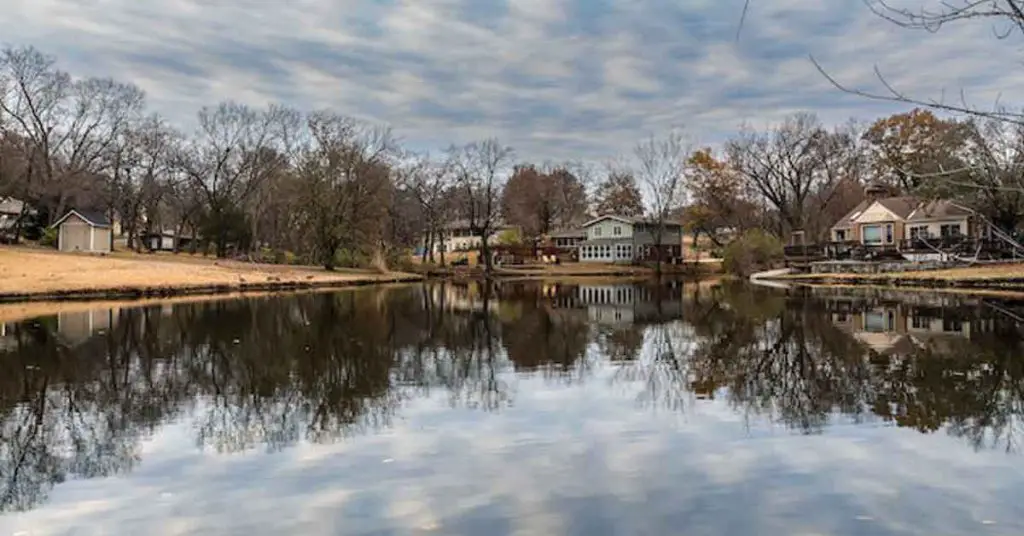
In the heartland of America, Missouri emerges as one of the best states for homesteading, often overshadowed by its vast neighbors but offering a world of opportunities for those seeking a self-sufficient lifestyle. With its welcoming communities, rich historical roots, and a landscape that seems to whisper promises of a fruitful harvest, Missouri is the place where homesteading dreams can truly take root.
Affordability Meets Opportunity
Starting a homestead can be daunting, especially when considering the financial aspects. However, Missouri eases this burden with its affordable land prices. The state presents a variety of options, from sprawling fields to quaint plots near town centers, all at prices that won’t break the bank. This accessibility opens doors for new homesteaders to establish their haven without the financial strain often associated with land ownership.
Fertile Grounds for Ambitious Growers
If the soil could speak, it would sing praises of Missouri’s land. The state boasts rich soil quality, a gift to those wishing to delve into crop cultivation and gardening. Whether you’re planting rows of sweet corn, establishing a home orchard, or setting up a permaculture food forest, the land here responds with a bounty that rewards hard work and tender care.
Water Abundance: A Homesteader’s Relief
Water is the lifeblood of any homestead, and Missouri understands this well. The state is graced with an abundance of water sources, from serene rivers and underground aquifers to seasonal rainfalls that keep the land hydrated. For homesteaders, this means a reliable water supply for farming, livestock, and household needs, ensuring that the homestead thrives through the seasons.
Friendly Regulations: Nurturing Sustainable Living
Missouri stands out with its state regulations that smile upon the homesteading community. From property tax exemptions for agricultural land to supportive laws for raw milk sales and rainwater harvesting, the legal environment encourages sustainable and self-sufficient living. These regulations not only make it easier to run a homestead but also reflect the state’s commitment to preserving a way of life that respects the land and its resources.
In conclusion, Missouri is more than a place on a map; it’s a homesteader’s sanctuary. It combines affordability with fertile land, abundant water, and homesteader-friendly regulations, offering a supportive foundation for those wishing to step into a world of self-reliance. So, if you’re searching for a sign, this is it: Missouri welcomes you to start your homesteading journey within its borders, where your aspirations can grow as wildly as the native blackberries on a warm summer day.
Ready to settle in the heart of America? Check out our Missouri Homesteading Essentials for practical advice on farming, property selection, and self-sufficiency.
3. Tennessee: Homesteading Harmony Between Seasons and Community
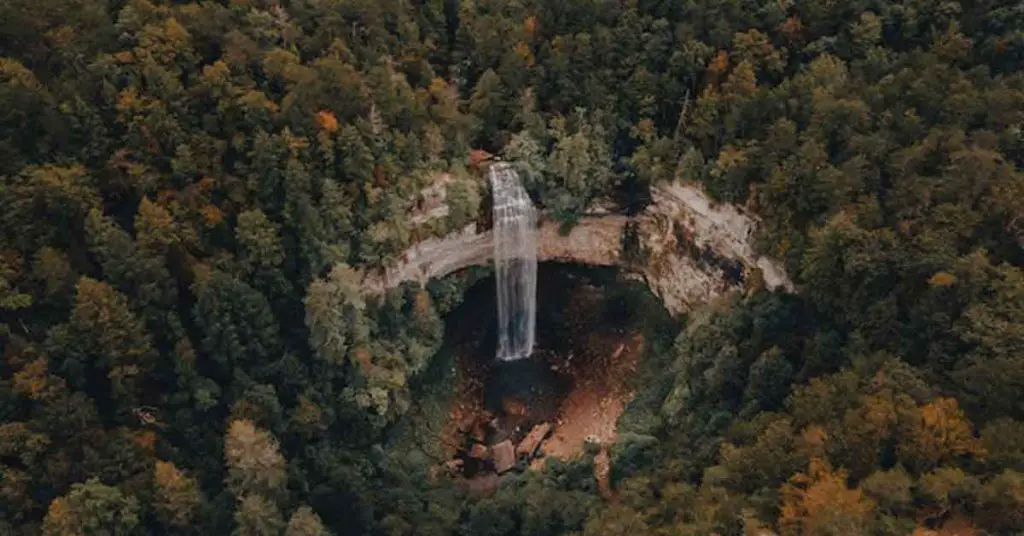
Nestled in the heart of America’s southeastern region, Tennessee, known for its musical roots and vibrant culture, plays a harmonious tune for individuals seeking the best states for homesteading. With its temperate climate, supportive community, and a backdrop that seems plucked from a painter’s canvas, Tennessee offers more than a place to settle; it provides a lifestyle harmonized with nature and society.
A Climate That Welcomes Your Farming Dreams
One of Tennessee’s standout verses is its climate, offering a melody of moderate weather that serenades the aspirations of every homesteader. The state’s distinct, yet mild, seasonal changes are a boon, allowing for year-round farming opportunities. Whether it’s the spring’s first bloom, summer’s warm embrace, the cool dance of fall leaves, or the mild winter whisper, each season brings its own set of agricultural advantages, letting your homesteading dreams flourish.
Community Chords: Strong, Supportive, and Harmonious
In Tennessee, you’re never homesteading solo. The state is renowned for its tight-knit communities, offering a network of fellow homesteaders eager to share their experiences, trade secrets, and sometimes even lend a helping hand. From community seed exchanges to educational workshops on sustainable living, you’ll find a group here that resonates with your homesteading frequency.
Cultural Richness and Market Rhythms
Your homestead’s produce is more than food; it’s a ticket to Tennessee’s rich cultural symphony. With local markets aplenty, homesteaders have unique opportunities to sell their produce, be it organic vegetables, homemade cheeses, or artisanal crafts. These markets are more than commerce hubs; they’re social gatherings grounded in Tennessee’s deep cultural roots, offering a chance to meet locals, bond with fellow vendors, and even sway to some live local tunes.
Scenic Beauty and Biodiversity: Life’s Natural Melody
Living in Tennessee is an artist’s retreat. The state’s scenic beauty, from its rolling hills to its verdant valleys and tranquil rivers, is a daily masterpiece displayed right outside your window. This natural aesthetic isn’t just for show; it plays a critical role in the state’s biodiversity, offering a haven for various wildlife, pollinators, and native plants that contribute to a healthy homesteading ecosystem.
In closing, Tennessee strikes a chord for those seeking a homesteading life in tune with nature’s rhythms. It’s a state where your homesteading activities form a symphony with the community’s heartbeat, set against a backdrop of natural grandeur. So, if you’re searching for a life composed of sustainability, social richness, and serene landscapes, let Tennessee be the music guiding your homesteading journey.
From rolling hills to rich soil, Start Homesteading in Tennessee offers a complete breakdown of everything you need to begin your homestead journey.
4. Idaho: The Homesteader’s Frontier of Freedom and Community Spirit
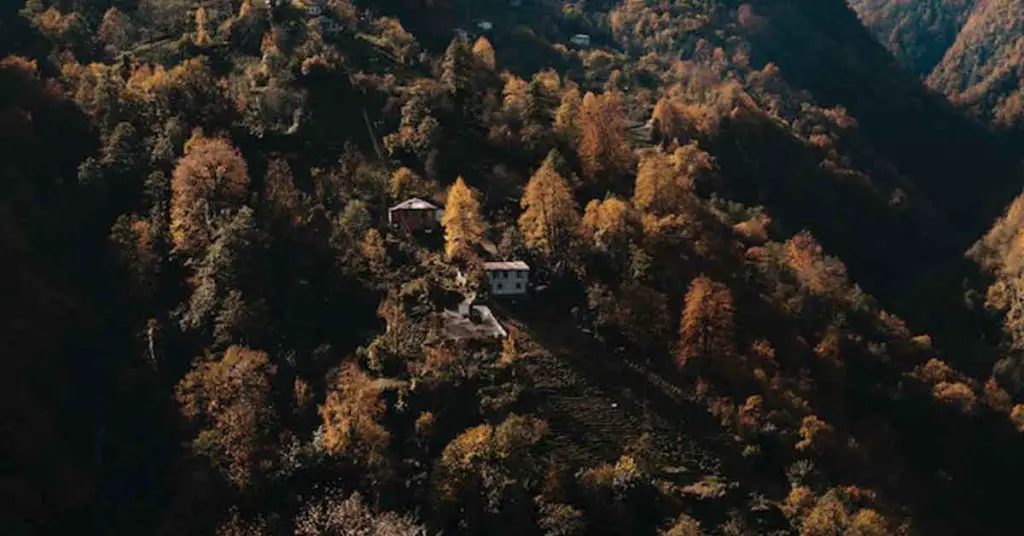
In the grand tapestry of America’s landscape, Idaho is a gem often overshadowed by its more popular neighbors. However, for those in the know, particularly in the homesteading community, it’s a treasure trove of opportunity, freedom, and communal spirit. If you’re charting a course towards self-sufficiency, craving wide-open spaces, and yearning for a sense of community, then setting your homesteading sights on Idaho is a move you won’t regret.
Expansive Lands: Your Homesteading Canvas
Firstly, let’s talk space because in Idaho, there’s plenty of it. The state is a sprawling canvas waiting for your homesteading dreams to take shape. Here, you’re not confined to a postage-stamp piece of land. Instead, Idaho offers vast tracts of affordable land, perfect for large-scale homesteading, whether your vision includes extensive vegetable gardens, pastures for livestock, or even a small orchard.
Laws that Liberate: Off-Grid Living and Homesteading
Idaho sings a siren song for those seeking a life less ordinary, especially individuals looking to establish off-grid homesteads. The state’s laws are among the most favorable in the country for homesteading practices, with regulations that support rainwater harvesting, alternative energy sources, and more. This legislative freedom opens doors to a sustainable lifestyle that’s harmonious with the land and your principles.
Community Spirit: Thriving Together
Homesteading isn’t just about the land; it’s about the people you share it with. Idahoans have a strong community ethos, often coming together to exchange knowledge, resources, and sometimes labor. In this state, you’ll find a network of seasoned homesteaders and enthusiastic beginners, all willing to support one another. From community farmers’ markets to skill-sharing workshops, the sense of collective effort is palpable here.
A Climate of Possibilities: Agricultural Diversity
Idaho’s climate is as diverse as its landscape, offering a bouquet of agricultural opportunities. The state experiences all four seasons, each with its unique charm and challenges. This climatic variety means you can dabble in a range of farming activities, from cold-hardy vegetable varieties to heat-loving crops. Whether you’re nurturing a vineyard or raising honeybees, the Idaho climate can accommodate your agricultural endeavors.
In essence, Idaho is more than a destination; it’s a journey toward a fulfilling homesteading lifestyle. It’s where your aspirations for space, freedom, community, and agricultural diversity find fertile ground to grow. So, if you’re compiling a list of the best states for homesteading, make sure Idaho is on it. After all, in this beautiful state, you’re not just building a homestead; you’re crafting a lifestyle intertwined with nature, bolstered by freedom, and enriched by a community of like-minded souls.
Thinking of heading north? Our Idaho Homesteading Guide covers everything from cold-climate farming to off-grid living in rugged terrain.
5. Oregon: Embracing Sustainable Living and Community in Nature’s Playground

Oregon, a state known for its rugged coastal lines, dense forests, and environmental mindfulness, stands out as a beacon for individuals passionate about sustainable living. If you’re contemplating a life of homesteading, Oregon’s progressive ethos, diverse landscapes, and community-driven initiatives make it one of the best states for homesteading, especially for those who hold environmental stewardship close to their hearts.
A Haven for Sustainable Practices and Organic Farming
Oregonians aren’t just advocates for environmental sustainability; they live it. The state has been a trailblazer in organic farming, encouraging residents and farmers alike to adopt practices that nurture the soil and the ecosystem. Here, you’ll find community gardens thriving, farmers’ markets in abundance, and agricultural policies designed to promote organic and sustainable farming methods. This supportive backdrop is ideal for homesteaders who envision a lifestyle aligned with nature’s rhythms.
Harnessing Nature’s Power: Renewable Energy Opportunities
In line with its green ideals, Oregon is a frontier for renewable energy, offering homesteaders practical ways to harness nature’s resources. The state’s initiatives in solar, wind, and hydro energy reflect in the communities that embrace these technologies. For the modern homesteader, this means accessible, sustainable energy solutions that reduce reliance on the grid, lower the carbon footprint, and, importantly, cut down utility bills.
Communities Rooted in Support and Ecological Awareness
The heart of homesteading beats in the community, and Oregon’s heart is strong. The state is a mosaic of communities where sharing harvests, knowledge, and resources is commonplace. Whether through community-supported agriculture programs (CSAs), local sustainability workshops, or eco-friendly building projects, newcomers will find a network of support and shared ecological commitment.
From Coastal Beauty to Fertile Valleys: A Geography of Possibilities
Oregon’s geographical tapestry is as varied as it is stunning. Homesteaders here are spoilt for choice, with landscapes ranging from the windswept Pacific coastline to lush, fertile valleys and imposing mountain ranges. This diversity not only feeds the soul but also offers a range of microclimates, catering to a variety of farming and livestock needs. Whether it’s a vineyard on a sunny slope or a small cattle farm in the grasslands, Oregon has a perfect spot for every aspiration.
In conclusion, Oregon is more than a homesteader’s paradise; it’s a statement of intent. It’s a choice for sustainable living, community support, and a life intertwined with nature’s bounty. So, if your homesteading journey is fueled by a desire for ecological harmony and community connection, pack your pioneering spirit and head for Oregon. Here, your dream and commitment to a sustainable future can find fertile ground to thrive.
Discover sustainable living in the Pacific Northwest with our detailed Homesteading Tips for Oregon, packed with climate, zoning, and crop advice.
6. North Carolina: A Blend of Tradition and Progress in Homesteading
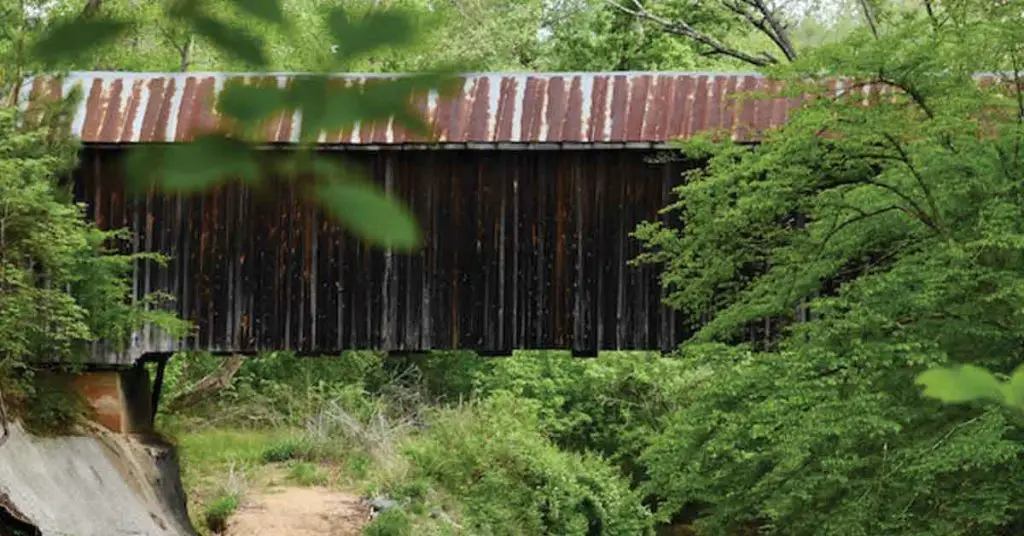
In the realm of self-sufficiency and sustainable living, North Carolina emerges as a land brimming with opportunities. This state, renowned for its scenic beauty and diverse landscapes, is a treasure trove for homesteaders. With its mild climate, supportive community, and balance between rural and urban life, North Carolina holds a special place in the hearts of those seeking a life closer to the land.
A Climate That Nurtures
One of North Carolina’s prime assets is its climate, characterized by mild winters and long growing seasons. This climate spectrum not only eases the challenges often associated with homesteading but also opens up a world of possibilities. From lush vegetable gardens to thriving poultry, and even the scope for permaculture principles, the environment here is a nurturing backdrop for a variety of crops and livestock.
Community Spirit in the Homesteading World
North Carolina is witnessing a renaissance in the world of homesteading and organic farming, thanks in part to a community that believes in sharing knowledge and mutual support. Across the state, you’ll encounter a network of seasoned homesteaders and enthusiastic beginners, all woven together by their love for the land and sustainable living. This growing community is a reservoir of resources, offering workshops, community seed exchanges, and barter systems, essential for both learning and thriving in your homesteading journey.
Educational Resources and Homesteading Events
Education is the cornerstone of successful homesteading, and North Carolina offers an abundance in this arena. The state is rich with programs, workshops, and events designed around the principles of sustainable living and self-sufficiency. Whether it’s a master class in organic gardening, a workshop on renewable energy, or a county fair showcasing local produce, these educational touchpoints provide practical knowledge and a sense of shared tradition and innovation.
Where Rural Charm Meets Urban Convenience
North Carolina beautifully marries its rural charm with urban amenities, presenting a unique advantage for homesteaders. The state’s towns and cities are peppered with farmers’ markets eager for fresh, local produce, and artisanal creations. This blend of rural and urban offers homesteaders the tranquility of country life without sacrificing the convenience or economic opportunities of the city.
In essence, homesteading in North Carolina is a journey of community, learning, and harmony with the land. The state doesn’t just accommodate the needs of homesteaders; it anticipates them, crafting a landscape where sustainable living is not just a dream, but a tangible, everyday reality. So, if you’re looking to plant your roots in a place that reverberates with community spirit, celebrates your love for the land, and supports your sustainable aspirations, North Carolina might just be your ideal homesteading destination.
Learn why the Tar Heel State is a favorite for new and seasoned homesteaders alike in our North Carolina Homesteading Guide.
7. Iowa: Fertile Foundations for Flourishing Homesteads
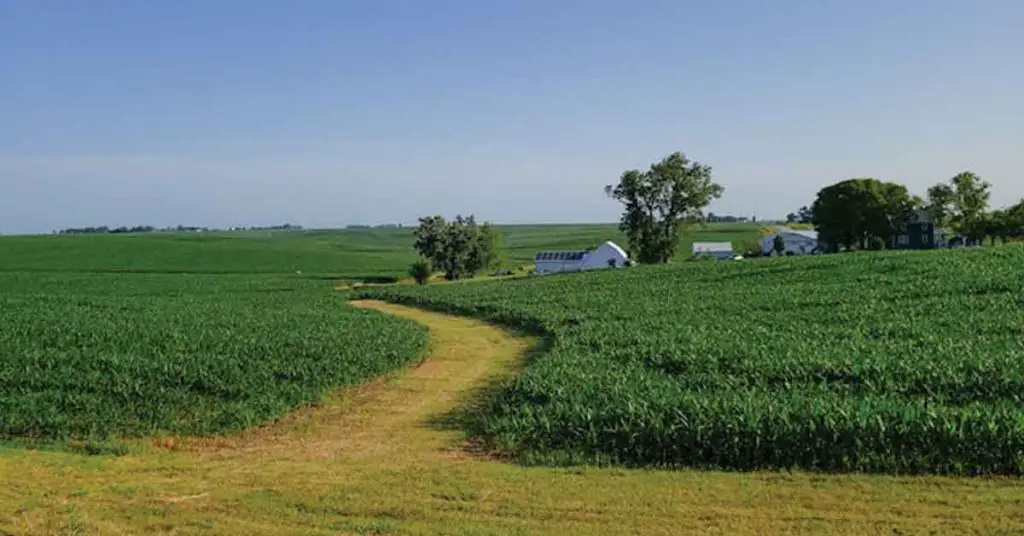
Embarking on the homesteading journey in Iowa is like stepping into a story that’s been unfolding for centuries. Known for its expansive skies, rolling fields, and rich agricultural heritage, Iowa is more than just a place to live — it’s a place to put down roots and thrive. The state’s commitment to sustainable living, coupled with its fertile lands, makes it a standout choice for anyone looking to embrace the homesteading lifestyle.
A Land Made for Growing
Iowa’s landscape is a tapestry of lush, fertile soil, a gift to anyone with a passion for cultivation. This state’s farmlands are legendary, offering homesteaders a rich foundation for diverse crop cultivation, from corn and soybeans to a spectrum of fruits and vegetables. The success stories of generations of farmers here aren’t just by chance; they’re a testament to the land’s innate richness and the hard work and dedication of the people who tend it.
Community and Tradition in Agriculture
In Iowa, you’re not just starting a homestead; you’re joining a community steeped in agricultural tradition. This state has long been a haven for those dedicated to the land, creating a culture that respects the past while eagerly embracing the future. Here, neighbors aren’t just friends; they’re a support system, offering a helping hand, sharing wisdom from seasons past, and sometimes even sharing resources during the lean times.
Sustainability and Conservation: Forward-Thinking Foundations
Iowa may be grounded in tradition, but it’s also forward-thinking, especially when it comes to sustainable living. The state offers various incentives for renewable energy use and conservation practices, affirming that a successful homestead isn’t just about what you take from the land but what you give back. From wind energy initiatives to soil conservation programs, homesteaders have access to resources that ensure their footprint is green.
The Harmony of Solitude and Community
Life in Iowa provides a balance that’s hard to find — the peace and solitude of rural living combined with a close-knit community’s support. It’s a place where you can enjoy quiet mornings watching the sunrise over your fields, knowing that advice, support, and companionship are just a short drive down a country road.
In essence, homesteading in Iowa is about becoming part of a larger narrative, one of respect for the land, dedication to sustainable practices, and a deep sense of community. It’s about laying the foundations for a life that’s not just sustainable but also enriching in every sense of the word. So, if you’re drawn to the soil and the sky, to the satisfaction of a day’s work in the fields, and the promise of a sustainable future, your homesteading dream awaits in Iowa.
Looking for fertile land and supportive farming communities? Don’t miss our How to Start Homesteading in Iowa guide for beginner-friendly tips.
8. Alaska: Homesteading on the Last Frontier
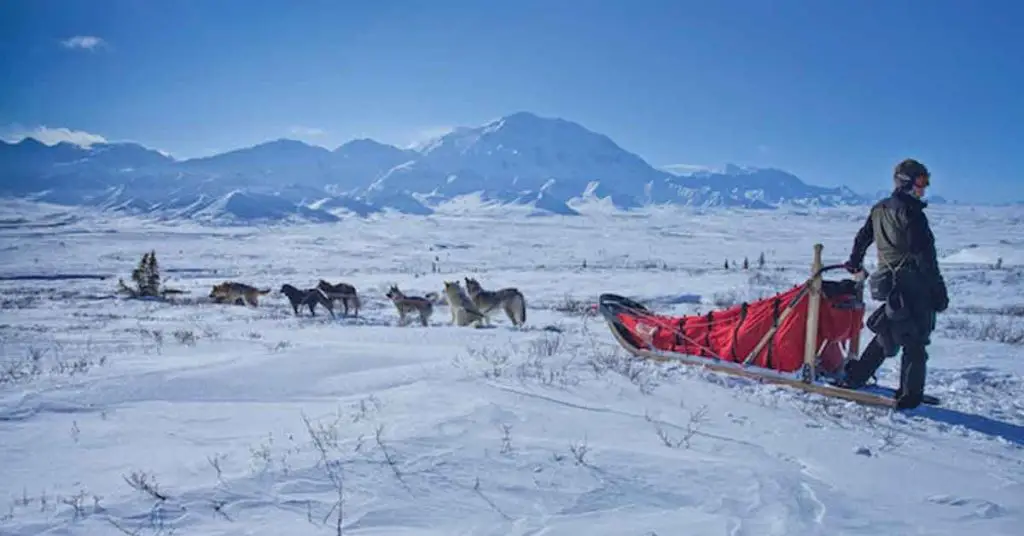
If there’s one place on Earth that tests the limits of the human spirit and offers rewards in equal measure, it’s Alaska. Homesteading here isn’t just a lifestyle; it’s an adventure that promises the raw beauty of nature, the satisfaction of self-reliance, and a deep connection with the land that you won’t find anywhere else.
Embracing the Extremes
Homesteading in Alaska comes with its unique set of challenges, most notably the extreme weather conditions. The cold is relentless, and the winters are long, but for those who are prepared, these icy months offer a quiet beauty that’s both mesmerizing and introspective. It’s about learning to work with the land, understanding its rhythms, and respecting the forces of nature that are very much out of our control.
The Ultimate Off-Grid Experience
For those drawn to a truly self-sufficient lifestyle, Alaska is your playground. The state is ripe with opportunities for off-grid living, from harnessing solar power during the summer’s midnight sun to mastering the art of ice fishing in the winter. It’s about building a life that’s not reliant on the outside world, a life where you know every meal, every warm moment by the fire, was earned by the work of your own two hands.
Community and Resilience: The Alaskan Way
In the face of challenges, Alaskans come together. There’s a sense of community here that’s forged by the very trials of living in such a place. Neighbors check on neighbors, share resources, and pass down knowledge that’s been earned over harsh years. It’s a place where preparedness isn’t just helpful; it’s necessary, and resilience is a shared value.
Nature’s Untamed Beauty
Beyond survival and self-reliance, homesteading in Alaska offers something that no other place can: an unbridled, breathtaking connection with nature. From the northern lights dancing across the sky to the vast, untouched wilderness that stretches as far as the eye can see, Alaska’s beauty is a constant reminder of why you chose this life.
In Alaska, homesteading is about more than just surviving; it’s about thriving in harmony with a land that’s as rugged as it is beautiful. It’s for those who seek a deeper connection, not just with the earth beneath their feet, but with themselves. It’s life, unfiltered and untamed, in one of the last true frontiers of the world. So, if your spirit is calling for a challenge and your heart yearns for the wild, your adventure awaits in Alaska.
Dreaming of a remote, rugged homestead? Our Alaska Homesteading Guide walks you through survival skills, infrastructure, and climate considerations.
9. Florida: The Sunshine State’s Homesteading Promise

Ah, Florida! Known for its sun-kissed beaches, vibrant cultural mix, and an enviable climate, this state is more than just a haven for tourists; it’s a dream come true for homesteaders seeking a blend of tropical paradise and sustainable living. But what makes Florida one of the best states for homesteading? Let’s dive into the lush, green world of agricultural abundance and community spirit that Florida offers.
Year-Round Growing Season
First and foremost, Florida’s warm climate is a game-changer. Imagine having the luxury of a year-round growing season where your garden offers a continuous bounty. From citrus groves, avocados, to a plethora of vegetables, the state’s climate allows for a diverse range of agricultural endeavors. This extended growing season means more produce, more variety, and, importantly, more room for experimentation and learning.
Eco-Friendly Farming and Permaculture
In recent years, there’s been a significant shift towards sustainable living in Florida, with communities embracing permaculture and eco-friendly farming practices. These methods work in harmony with the local ecosystem, promoting soil health, water conservation, and biodiversity. As a homesteader, you’ll find ample opportunities to learn from local experts, participate in workshops, and even contribute to conservation efforts.
A Melting Pot of Cultures
Florida’s rich cultural tapestry adds a unique flavor to its local communities. This blend of influences fosters a sense of inclusivity and provides a fantastic opportunity to learn, share, and celebrate various traditions, food, and festivals. As a homesteader, this cultural vibrancy can enrich your daily life and even introduce exotic elements into your farming practices.
Thriving Markets and Organic Consumers
The homesteading movement goes hand in hand with the rise of conscious consumerism. Floridians are turning towards organic produce and locally sourced products, which spells opportunity for you. The state is peppered with farmers’ markets, co-ops, and even restaurants eager to source fresh, local ingredients. As a homesteader, you’re not just growing food but nurturing a community invested in healthy, sustainable living.
In essence, homesteading in Florida is not just about self-sufficiency; it’s about being part of a larger, conscious community of like-minded individuals. It’s about respecting the land, indulging in the cultural mosaic, and contributing to a sustainable future. So, if you’re drawn to the allure of life under the warm sun, amidst bountiful harvests and vibrant community life, Florida’s homesteading scene is calling your name!
Enjoy year-round growing and a warm climate—explore our Homesteading in Florida guide to start your journey in the Sunshine State.
10. Maine: Homesteading in the Heart of New England

When you think of Maine, you might picture rugged coastlines, scenic landscapes, and perhaps a serving of their famous lobster. But there’s more to this New England state than meets the eye, making it one of the best states for homesteading. With its commitment to sustainable living, thriving local markets, and a community that feels like family, Maine is a place where your homesteading dreams can flourish.
A State That Backs Its Farmers
Maine is known for its support of small-scale farmers and homesteaders. The state offers numerous resources, grants, and educational opportunities specifically designed to help you succeed. Whether you’re looking to start a community garden, establish a full-fledged farm, or anything in between, you’ll find a network of support here. This commitment showcases Maine’s recognition of the vital role that individuals like you play in the local economy and food system.
Community-Supported Agriculture and Bustling Farmers’ Markets
If you’re passionate about direct-to-consumer selling, Maine’s vibrant scene of community-supported agriculture (CSA) and farmers’ markets will be right up your alley. These platforms not only provide a reliable outlet for your produce but also foster direct relationships with your community. You’ll meet folks who care about where their food comes from, and you’ll feel the satisfaction of feeding your neighbors.
Scenic Beauty and Close-Knit Communities
Living in Maine is an experience for the senses. The state’s natural beauty, from its peaceful forests to its serene coastlines, is a constant source of inspiration. What’s more, the close-knit communities here mean you’re more than just a farmer; you’re part of a family. These connections can be a significant source of emotional support, practical assistance, and local wisdom.
Eco-Conscious Living
Maine has a deep respect for the environment, and this is reflected in its encouragement of sustainable farming practices and eco-conscious living. As a homesteader, you’ll be in good company here, joining a community that takes pride in its stewardship of the land. Whether it’s through conservation efforts, renewable energy, or organic farming, your endeavors towards a greener future will be welcomed and celebrated.
In conclusion, homesteading in Maine is about more than just cultivating the land; it’s about cultivating relationships — with your community, the environment, and the local economy. It’s a place where your efforts nourish not just your own family, but also the world around you. So, if you’re looking for a state that truly values and supports your homesteading ambitions, you might just find yourself calling Maine home.
For a quiet life amidst forests and coastlines, our Explore Homesteading in Maine guide gives you everything you need to get started.
11. Colorado: High-Altitude Homesteading with a Sustainable Twist
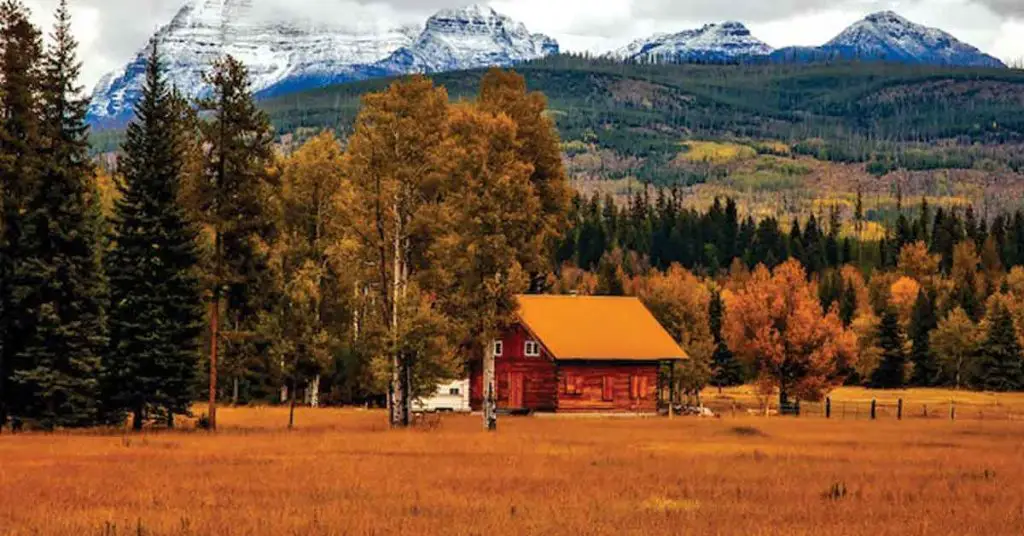
Ah, Colorado! Known for its majestic Rocky Mountains, this state is a gem for those looking to intertwine their love for homesteading with high-altitude farming. But it’s not just the fresh mountain air that’s enticing; Colorado is a trailblazer in sustainable living, offering a unique blend of rural life with modern, eco-friendly conveniences. Here’s why the Centennial State ranks high on the list of the best states for homesteading.
Farming Above Sea Level
First off, let’s talk about the unique agricultural practices here. Colorado’s varied elevations present the opportunity to grow a diverse range of produce that might not thrive elsewhere. From hearty root vegetables to certain specialty crops, high-altitude farming can be a delightful challenge that reaps bountiful rewards. And with the state’s ample sunny days, your solar-powered tools and gadgets will thank you!
Sun-Powered and Water-Wise
Speaking of solar, Colorado is big on renewable energy. The state encourages residents to harness the sun’s power, offering various incentives for solar panel installations. But it doesn’t stop there; water conservation is also top of mind here, essential in this often dry land. From rainwater harvesting to xeriscaping, you’ll find plenty of support for your sustainable endeavors.
A Community that Champions Eco-Conscious Living
You’re not alone in your sustainable lifestyle in Colorado. The state is teeming with community events, workshops, and markets centered around eco-conscious living. Whether you’re exchanging tips with fellow green-thumbed enthusiasts at a local seed swap or participating in community clean-ups, there’s a sense of collective responsibility for the land here.
The Best of Both Worlds
One of the charms of homesteading in Colorado is the balance between serene rural life and the buzz of urban amenities. You can spend your day tending to your livestock or garden and then take a short drive to enjoy a concert or restaurant in the city. This blend ensures you don’t have to compromise on your comforts or social life.
In essence, Colorado offers a homesteading experience that respects the past and embraces the future. It’s a place where your commitment to the land goes hand in hand with sustainable practices and where community support is as abundant as the state’s natural beauty. So, if you’re looking to start a homestead that aligns with modern environmental values without sacrificing the classic agrarian lifestyle, Colorado might just be your ideal destination.
Whether you’re drawn to the Rockies or open plains, our Colorado Homesteading Guide offers key tips on zoning, water rights, and farming in varied terrain.
Legal and Financial Considerations: Navigating the Path to a Successful Homestead
Embarking on your homesteading journey is undeniably thrilling, but it’s not without its maze of legal and financial considerations. While you’re dreaming of lush gardens and livestock, remember, the backbone of a successful homestead often rests on a solid understanding of the rules of the land and savvy financial planning. So, let’s unravel some of these crucial threads together, ensuring your homesteading adventure in the best states for homesteading is both lawful and financially sound.
Know Thy Regulations
First and foremost, it’s vital to recognize that each state waves its own regulatory wand over homesteading activities. From property rights, building codes, to livestock regulations, what’s permissible in Tennessee might be frowned upon in Colorado. For instance, certain states might allow rainwater harvesting, a boon for sustainable living, while others may have restrictions due to water rights laws.
It’s not just about staying out of trouble; understanding these regulations can also unlock opportunities. Some states offer “right to farm” laws protecting farmers from nuisance lawsuits, which can be a game-changer for your rural lifestyle.
Tax Incentives and Zoning Laws – Your Financial Compass
Here’s where it gets interesting. Several states encourage homesteading and agricultural pursuits through tax breaks and incentives. These financial carrots can often be found in programs designed to preserve farmland or promote organic farming. It’s like a treasure hunt – with a bit of research, you might find yourself saving a chunk on property taxes or scoring a grant for your permaculture project.
Zoning laws are another piece of the puzzle, dictating everything from the type of structures you can build to how you can use your land. These laws can affect your homestead’s layout, so understanding them is key to avoiding costly mistakes.
Resources for Financial Support
Accessing the right financial support can significantly ease your homesteading journey. Below are some resources that could be invaluable in providing financial assistance, grants, loans, or guidance for aspiring and established homesteaders:
USDA Farm Service Agency (FSA)
The FSA supports farmers and homesteaders through a variety of loan and grant programs. Whether you’re a beginner or experienced agriculturalist, there’s a range of financial options to explore. Visit their website for more information on eligibility and application processes.
National Sustainable Agriculture Coalition (NSAC)
NSAC advocates for policy reform to advance the sustainability of agriculture, food systems, natural resources, and rural communities. They offer a wealth of information on current agricultural policies and funding opportunities. Check out their resources here.
Farm Aid
Since 1985, Farm Aid has provided critical support and resources to help farmers thrive, offering various programs and assistance. If you’re looking for guidance or even emergency aid, this could be a go-to resource. Explore their website for more.
Rural Development – U.S. Department of Agriculture
This sector of the USDA is dedicated to helping rural America through various grants, loans, and loan guarantees. They offer financial aid for various projects, from water systems to housing and community facilities. Learn more about their programs.
ATTRA – Sustainable Agriculture Program
Run by the National Center for Appropriate Technology (NCAT), this program offers funding resources, sustainable agriculture tips, and various learning materials for farmers and homesteaders. Visit their site for a plethora of resources.
Beginning Farmers
An online resource offering information on finding funding, writing business plans, and more. It’s particularly helpful for new farmers and homesteaders. Check out their funding resources.
Remember, the application processes for financial support can be competitive and time-consuming. It’s crucial to thoroughly understand the eligibility criteria and application requirements. Additionally, consider reaching out to local agricultural extension offices or community schemes that might offer localized support or grants for homesteaders.
In conclusion, while homesteading is a path back to the roots, it’s woven with modern legal and financial threads that need careful navigation. But fear not, with due diligence and the wealth of resources available, you can set up a homestead that’s not just a haven of self-sufficiency but also a testament to smart planning. So, ready to dive into the legal and financial waters of homesteading? The journey is complex, but oh, the rewards are rich!
Community and Networking Opportunities

Embarking on your homesteading journey doesn’t mean you have to do it alone. In fact, one of the most enriching aspects of this lifestyle is the community. Whether you’re in the heart of one of the best states for homesteading or just starting to plot your escape to a more sustainable way of living, tapping into the right networks can make all the difference.
The Power of Community in Homesteading
Homesteading, at its core, is about sustainability, self-sufficiency, and a return to natural living — but it’s also about people. Community support plays a pivotal role in successful homesteading. From sharing tools and exchanging produce to lending a helping hand or valuable advice, your homesteading neighbors can quickly become your go-to support system.
It’s the shared tips on the best local markets, the joint efforts in community gardening, or collective advocacy for eco-friendly initiatives that strengthen not just your individual homestead, but the entire local ecosystem. Plus, in challenging times, these are the folks who truly understand your struggles and triumphs.
Building Your Homesteading Network
So, how do you find your tribe? Here are some tried-and-true strategies:
Local Homesteading Groups
Many regions have their own homesteading societies, often a treasure trove of resources, from seed swaps to canning workshops. Look for flyers at your local coffee shop, community center, or agricultural supply store.
Online Communities
In today’s digital age, connecting with fellow homesteaders is just a click away. Platforms like Homesteading.com and forums on Reddit offer global perspectives and advice on everything homesteading. Don’t overlook Facebook groups and other social media networks where local and regional groups often advertise events and share tips.
Educational Workshops and Events
Keep an eye out for workshops, seminars, and fairs hosted by agricultural extensions, local farms, or homesteading enthusiasts. Events like Mother Earth News Fairs are fantastic for soaking up knowledge, meeting like-minded individuals, and even finding new passions.
Volunteering
Nothing builds community like working shoulder to shoulder for a common cause. Volunteer at local farms, farmers’ markets, or community gardens. It’s a hands-on way to learn and connect.
Community-Supported Agriculture (CSA)
Joining a CSA is not only a great way to get fresh produce; it’s a chance to build relationships with local farmers. Often, these programs also offer events and volunteer opportunities.
Remember, every connection is a thread in the fabric of your homesteading network. Whether it’s a friendly conversation over a fence or a quick message on an online forum, never underestimate the value of reaching out. After all, plants aren’t the only things that grow in a homestead – friendships do too.
Preparing for the Move
So, you’ve decided to take the leap into homesteading, and you’re ready to move to one of the best states for homesteading. Congratulations! This journey, while incredibly rewarding, requires careful planning and consideration, especially when it involves uprooting your life to settle into a new community. Here’s how to ensure your transition is as smooth as possible.
Planning Your Homestead Move
Before the trucks arrive and the boxes are packed, there’s significant groundwork to lay. Homesteading isn’t just a move; it’s a lifestyle change. Here’s what you need to consider:
Understanding Your Needs
Evaluate what you require for your homestead. Do you need vast pastures, specific climate conditions, or proximity to certain resources? Make a checklist.
Research
Deep dive into your chosen location. Understand the soil quality, weather patterns, and any environmental challenges. Resources like the USDA’s Web Soil Survey can provide valuable information.
Legalities and Compliance
Familiarize yourself with local regulations. Are there zoning restrictions, agricultural permits, or livestock allowances you need to consider?
Financial Preparation
Homesteading can come with unexpected costs. Ensure you have a financial cushion to cover the initial setup, from land purchase to emergency repairs.
Healthcare Access
Especially important if you’re moving to a remote area. Know where the nearest medical facilities are and consider telehealth services for added convenience.
Settling into Your New Community
Once the move is behind you, the adventure truly begins. Here’s how to make your transition easier:
Meet the Neighbors
Introduce yourself to your local community. Neighbors can be invaluable sources of local knowledge, from the best feed stores to identifying the strange bug eating your crops.
Join Community Groups
Whether it’s a gardening club or a community service organization, getting involved helps you integrate faster and builds your support network.
Learn Local Customs
Every area has its unique traditions and cultural norms. Be observant, ask questions, and show respect for the local way of life.
Offer a Helping Hand
Nothing says, “I’m here to be part of the community” like offering assistance. Whether it’s helping with a community project or a neighbor’s barn raising, your efforts will be appreciated and reciprocated.
Stay Open and Adaptable
Every new environment comes with its surprises. Stay flexible, and remember, mistakes are just learning opportunities.
Moving for homesteading is more than a change of scenery; it’s adopting a new way of life. It’s about becoming part of a community that shares your commitment to a sustainable, fulfilling lifestyle. So, embrace the journey with an open heart, a keen mind, and a readiness to plant your roots in new soil. Here’s to your new life — may it be as rich as the earth you tend to!
Conclusion: 11 Best States for Homesteading in 2025
As we’ve ventured together through the diverse landscapes of the best states for homesteading in 2025, one thing is clear: the United States is a tapestry of rich soils, varied climates, and communities waiting to welcome you into the fold of sustainable living. From the sun-kissed fields of Florida to the rugged terrains of Alaska, each state offers unique treasures and challenges, painting a world of possibilities for every aspiring homesteader.
Remember, homesteading is not a one-size-fits-all journey. It’s deeply personal, reflecting your values, aspirations, and the kind of life you envision for yourself and your family. Whether it’s the community spirit of Iowa, the environmental stewardship thriving in Oregon, or the self-sufficient extremes that Alaska demands, each location nurtures a different facet of the homesteading dream.
So, what speaks to you? Is it the call of the wild, the rhythm of rural life, or the harmony of a self-sustaining ecosystem? As you stand on the cusp of this life-altering decision, reflect on what you’ve learned:
Community and Support
Places like Maine and North Carolina, with their robust support networks, remind us that we’re not alone on this journey.
Sustainability Practices
States like Colorado and Oregon are at the forefront, pushing boundaries in renewable energy and conservation.
Agricultural Richness
The fertile lands of Iowa and Florida offer abundant rewards for those willing to work the soil.
Your ideal homestead isn’t just a location; it’s a lifestyle that resonates with your innermost being. And while this guide provides a compass, only you can set the direction.
Now, we turn the conversation over to you, our readers. We invite you to share your insights, experiences, and even the trepidations you might have about taking this step. Which of these promising states holds your dream homestead? What lessons have you gathered from your own journey that could light the path for others?
Comment below and join the dialogue. Let’s enrich this journey for everyone by sharing our stories, because, in the tapestry of homesteading, every thread adds depth, color, and strength to the whole. Here’s to the adventures, the challenges, and the community we build along the way!
Disclaimer: The information provided in this article is for general informational purposes only and is not intended to be a substitute for professional advice. The author of this article does not claim to be an expert in homesteading and the information provided should not be relied upon to make decisions about your own homesteading journey. Please do your own research and consult with a qualified professional before making any decisions about your homestead.
Share via:
Shaun Alexander is the main writer and editor for HomesteadingSimple.com. With a strong passion for homesteading and sustainability, Shaun has dedicated his life to learning and sharing information about a simple, fulfilling existence tied to the land. His expertise ranges from gardening and livestock management to off-grid living and DIY projects, reflecting the diverse skills necessary for a successful homesteading lifestyle. Shaun’s goal is to inspire and educate others about the possibilities of homesteading, whether in rural, suburban, or urban settings, and to provide practical advice and tips for both beginners and seasoned homesteaders. He believes in a future where more people return to their roots, embracing a life of self-sufficiency and harmony with nature.


